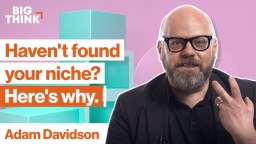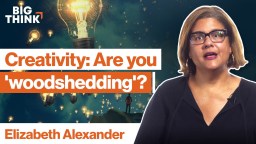TINA BROWN: Well, I think writers and photographers and all creative people do need a deadline to get anything done.
It's remarkable to me, including myself, if someone isn't saying to me, I want this piece, I'm not going to write it. I'm just not. It's too hard. Writing is too difficult. And doing any creative work takes such intellectual sort of tussle that if there's any way you can escape from it, you will.
So deadlines, I think, are a critical point of extracting great work. And interestingly, some of the best work has been done under deadline. For instance, the great photographer, Richard Avedon, he always liked to do both kinds of work - his deadline work, his journalism work, his fashion magazine work, and then his artistic shows. His best art was actually the stuff he did for magazines. I mean, it was better than anything he did on the slow burn of his shows. There was something about the adrenaline. There was something about the discipline of knowing that you had an audience as opposed to simply being a museum show or whatever that actually brought out the best work in his artistry, I think.
And I think that's often true, that sometimes the best work is done under the gun - somebody writing at warp speed. I think that, interestingly, the journalism that was done right after 9/11 was some of the best journalism that we've seen in the last 25 years. It was like writers and photographers and editors, so energized by the need to get this content done, there wasn't any wasting of time or sort of frothing it all up or whatever, they did their best work. They were really inspired to do their best work. And that was done under the gun with a need to get it done. There's nothing like the urgency of subject matter, content, and passion.
I actually think sometimes you can do your best work when you're up against the wall. I mean, sometimes we create some amazing cover when we lost our big star, just by being creative.
And in fact, one of my mottos as an editor was, if you haven't got a budget, get yourself a point of view. It's like you have to be cleverer with no budget. And you have to, perhaps, come up with some angle, some creative idea that will get you over that hump.
I always rather like working with TV producers, actually, in my role at Women in the World because they have to fill that seat on the program. Otherwise, it's just empty screen. So that makes them a bit less procrastinating, frankly, than people working in a situation where they've got another way out. If you have to get somebody there, you've got to figure out, well, I haven't been able to get that big guest. I've got to find this other guest who's going to be as interesting, but perhaps in a completely different way. That takes a bit more creativity.





